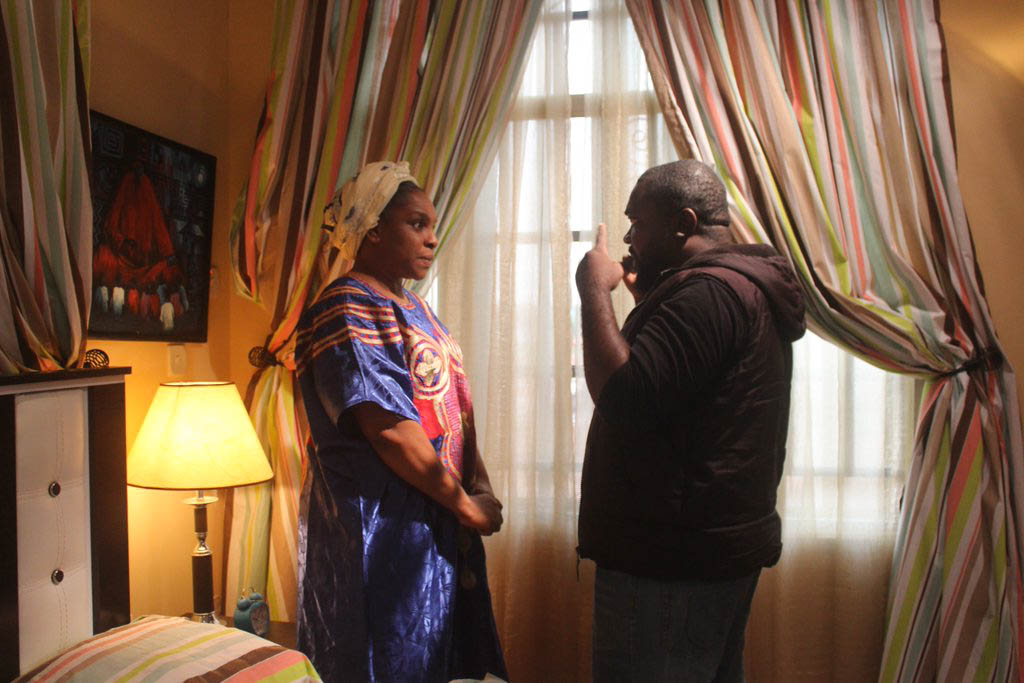First Published on FEBRUARY 10, 2020
At a special BAFTA: A Life in Pictures Event, Ridley Scott told filmmakers present that they had no excuses not to go out and make a movie. He cited the availability of modern technologies as 70% of previously daunting barriers eliminated. Typical of the average Nigerian filmmaker, it is easy to assume that the context over there is different from ours by pointing out to the familiar mitigating factors, but the truth remains that there has never been a better time for the Nigerian filmmaker to make a film. Cameras of different types are available just about everywhere. Even better, the average smart phone can conveniently shoot and as well edit films.
Film Kaku recently had an interview with Nigerian Filmmaker, Imoh Umoren, where his filmmaking journey was discussed. The director of Children of Mud, The Herbert Macaulay Affair and Dear Bayo certainly knows a lot about working your way up from industry wilderness to renowned status whilst staying true to unconventional stories and the necessary indie ideals.
Be prepared to learn on the job. It doesn’t matter what you were taught in New York Film School or wherever, it’s a different ball game when you enter the streets of Nigeria. No film school is going to teach about the difficulties in getting and negotiating locations, dealing with street boys and managing noise. With consistent exposure comes the experience to navigate these obstacles as you strive to make a good film.
Have a substantial body of work before prancing about for investors. It’s a common sight, these days, to see young filmmakers armed with treatments and scripts complaining about doors getting slammed in their faces. The complaint is usually that the investors are not interested, or that they string filmmakers along with noncommittal responses before going cold. But the truth is, an investor will only take you serious if you can prove, with a body of work, that you can deliver excellence. So, before looking for investors, use the meager sums you can gather and shoot something. Rinse and Repeat. Till you have a collection of works you can proudly present before investors.
Don’t be in a hurry to make a big film. The commonly ignored advantage that young filmmakers have is artistic freedom. As a young filmmaker, you can shoot whatever genre you like, adopt whatever tone you prefer, cast whoever you like, do whatever. All these may not be possible the moment you have to handle large budgets funded by an executive producer/investor extra particular about profits. Most times, they will dictate what to write and shoot. Also, at the point of accepting to work for/with executive producers and investors, be sure they are people you really want to work with. Due diligence, fact finding and just about any form of research must have been done before inking that document.
Work with your friends. A young filmmaker shouldn’t be looking to pay huge sums of money to recruit recognized actors and crew members when the outlay can be channeled into something else. Young filmmakers should connect laterally with other players in the industry and strike collaborations. That way, you are guaranteed to get talented hands to work for you at reduced costs. A friend of mine, while starting out as a filmmaker, worked with lead actors on a project and regretted it very quickly. Two of them suddenly travelled out of the country without prior information and production had to be delayed for as long as three months. Work with people at and around your level. When you are bigger, you have the clout to curtail big stars and their errant tendencies.
Fall in love with film festivals. Film festivals are ready platforms with a large number of people itching to assess your work. At this stage, you probably cannot afford a cinema premiere and run. Festivals, instead, should be the way to go. There are many festivals globally that are free, and submitting your films not only showcases you to the public but also provides you the opportunity to have your work critiqued. Takeaways from criticism should help you improve as you move to the next project. Festivals are also places to strike friendships and connections.
Don’t be the type to frown at criticism. It’s a valid subset of art and you must respect it. Truly, there are venomous charlatans out there, claiming to be critics, but know how to sift through the submissions for what you should take away and move on. Don’t be the kind to clamp down on criticism because a few heads in circle rub your back for doing a good job. Don’t. Good luck as you go out to shoot that film.
By Isaac Ayodeji


Leave a Reply